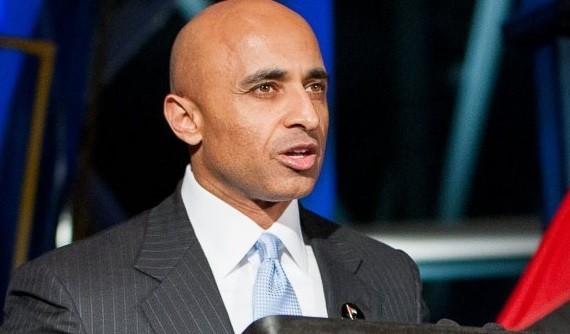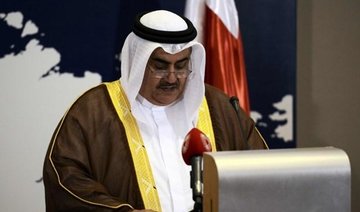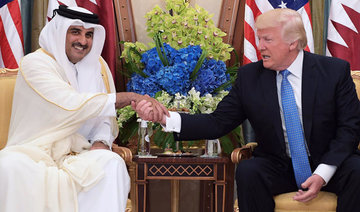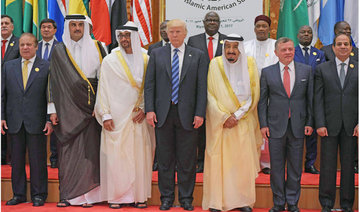No smoking gun in hacked emails of UAE envoy in Washington
No smoking gun in hacked emails of UAE envoy in Washington

Heatwave leaves Moroccan cities sweltering in record-breaking temperatures

- In the coastal city of Casablanca, the mercury reached 39.5C (103 Fahrenheit), breaching the previous record of 38.6C set in June 2011
RABAT: Monthly temperature records have been broken across Morocco, sometimes topping seasonal norms by as much as 20 degrees Celsius, the national meteorological office said Sunday, as the North African kingdom was gripped by a heatwave.
“Our country has experienced, between Friday 27 and Saturday 28 of June, a ‘chegui’ type heatwave characterised by its intensity and geographical reach,” the meteorological office (DGM) said in a report shared with AFP.
The heatwave, which has also struck across the Strait of Gibraltar in southern Europe, has affected numerous regions in Morocco.
According to the DGM, the most significant temperature anomalies have been on the Atlantic plains and interior plateaus.
In the coastal city of Casablanca, the mercury reached 39.5C (103 Fahrenheit), breaching the previous record of 38.6C set in June 2011.
In Larache, 250 kilometers (150 miles) up the coast, a peak temperature of 43.8C was recorded, 0.9C above the previous June high, set in 2017.
And in central Morocco’s Ben Guerir, the thermometers hit 46.4C, besting the two-year-old record by 1.1C.
In total, more than 17 regions sweltered under temperatures above 40C, the DGM said, with Atlantic areas bearing the brunt.
“Coastal cities like Essaouira recorded temperatures 10C or 20C above their usual averages” for June, the DGM said.
Inland cities such as Marrakech, Fez, Meknes and Beni Mellal experienced heat 8C to 15C above the norm, with Tangier in the far north at the bottom end of that scale.
The forecast for the days ahead indicates continuing heat in the interior of Morocco due to a so-called Saharan thermal depression, an intense dome of heat over the desert.
Netanyahu sees ‘opportunities’ to free Gaza hostages

- Palestinian militants seized 251 hostages during Hamas’s attack on Israel on October 7, 2023
JERUSALEM: Israeli Prime Minister Benjamin Netanyahu said Sunday that his country’s “victory” over Iran in their 12-day war had created “opportunities,” including for freeing hostages held in Gaza.
“Many opportunities have opened up now following this victory. First of all, to rescue the hostages,” Netanyahu said in an address to officers of the security services.
“Of course, we will also have to solve the Gaza issue, to defeat Hamas, but I estimate that we will achieve both goals,” he added, referring to his country’s campaign to crush the Palestinian militant group.
In a statement late Sunday, the main group representing hostages’ families welcomed “the fact that after 20 months, the return of the hostages has finally been designated as the top priority by the prime minister.”
“This is a very important statement that must translate into a single comprehensive deal to bring back all 50 hostages and end the fighting in Gaza,” the Hostages and Missing Families Forum said.
Palestinian militants seized 251 hostages during Hamas’s attack on Israel on October 7, 2023.
Of these, 49 are still believed to be held in Gaza, including 27 the Israeli military says are dead. Hamas also holds the body of an Israeli soldier killed there in 2014.
The forum called for the hostages’ “release, not rescue.”
“The only way to free them all is through a comprehensive deal and an end to the fighting, without rescue operations that endanger both the hostages and (Israeli) soldiers.”
Partial collapse of Sudan gold mine kills 11

- Africa’s third-largest country is one of the continent’s top gold producers, but artisanal and small-scale gold mining accounts for the majority of gold extracted
KHARTOUM: A partial collapse of a traditional gold mine has killed 11 miners and wounded seven others in war-torn Sudan’s northeast, the state mining company said on Sunday.
Since war erupted between Sudan’s regular army and the paramilitary Rapid Support Forces in April 2023, Sudan’s gold industry has largely funded both sides’ war efforts.
In a statement, the Sudanese Mineral Resources Company, or SMRC, said that the collapse occurred in an “artisanal shaft in the Kirsh Al-Fil mine” in the remote desert area of Howeid, located between the army-controlled cities of Atbara and Haiya in Sudan’s northeastern Red Sea state.
It did not mention when the collapse took place.
The war, now in its third year, has shattered Sudan’s already-fragile economy, yet the army-backed government announced record gold production of 64 tonnes in 2024.
Africa’s third-largest country is one of the continent’s top gold producers, but artisanal and small-scale gold mining accounts for the majority of gold extracted.
In contrast to larger industrial facilities, these mines lack safety measures and use hazardous chemicals that often cause widespread diseases in nearby areas.
SMRC said it had previously suspended work in the mine and “warned against its continuing activity due to its posing a great risk to life.”
Before the war, which has pushed 25 million people into dire food insecurity, artisanal mining employed more than 2 million people, according to the industry.
Today, according to mining industry sources and experts, much of the gold produced by both sides is smuggled to Chad, South Sudan, and Egypt, before reaching the industrialists.
Tens of thousands of people have been killed in Sudan, where over 10 million people are currently displaced in the world’s largest displacement crisis.
A further 4 million have fled across borders.
How news from the Middle East is shaping Gen Z’s mental well-being

- UNICEF-led study warns constant news exposure is overwhelming Gen Z, fuelling anxiety, disconnection, and growing mental health concerns
- Despite feeling informed and engaged, many young people say nonstop digital headlines are undermining their well-being and sense of agency
DUBAI: Gen Z — those born between the late 1990s and early 2010s — consumes more news than any other type of content, according to a new study unveiled by the UNICEF-led Global Coalition for Youth Mental Health — a finding that many may find surprising.
What is less surprising, however, is the emotional toll that constant exposure to global headlines appears to be taking on young people.
The study, based on a survey of more than 5,600 people aged 14 to 25 globally, found that 60 percent of Zoomers reported feeling overwhelmed by the news. Despite these pressures, they remain determined to contribute to shaping a better future.
In a statement to Arab News, Dr. Zeinab Hijazi, UNICEF’s global lead on mental health, said such anxieties are shaped by a combination of geopolitical conflict, climate and ecological crisis, and economic uncertainty.

“For many, especially young people, the weight of these overlapping crises is not abstract — it’s deeply personal, showing up in their minds, their bodies, and their sense of hope for the future,” said Hijazi.
The study, which was unveiled at the Social Innovation Summit in San Francisco, raises concerns that feelings of being overwhelmed and disempowered may be eroding young people’s sense of agency.
This is hindering their ability to help shape the future they envision for themselves and generations to come. This impact on mental health is compounded, the study states, by inadequate support and services available to young people.

“It can feel as though we are caught in a constant storm of challenges, with little control over the forces shaping our world,” said Hijazi.
Given its serious repercussions, Hijazi emphasized that mental health should not be treated as a side effect of global disruption, but as a central pillar of collective efforts to empower youth in shaping a better future.
While Gen Z tends to feel connected and engaged with world events, around 67 percent of the global cohort reported feeling overwhelmed after exposure to news or events in the world, more than news in their country (60 percent) or their community (40 percent).
Escalating geopolitical tensions and instability in the Middle East, particularly since the onset of Israel’s latest war on Gaza in 2023, have raised concerns among analysts about the long-term impact on youth and the potential for fomenting extremism in times of unrest and uncertainty.

Psychologists and media analysts believe that exposure to such news through social media platforms also increases the emotional toll on young users.
Dr. Shaima Al-Fardan, a UAE-based clinical psychologist, highlighted the impact of constant exposure to news and endless scrolling on youth development.
“It can isolate youth from real-life social interactions, which in turn hinders the development of essential social skills. It also consistently heightens negative emotions, reinforcing those emotional patterns over time.”

According to Attest, a consumer research platform, social media platforms serve as the primary news source for Gen Z. About 43 percent said they rely on social media for daily news, with TikTok leading for 21 percent of users.
While instant access to content across digital platforms can broaden young people’s awareness of global events, Al-Fardan warned that it also exposes them to misinformation and propaganda.

“It is important to be taught to be critical about news they consume at this time due to their brain development, as they have still not been able to fully form the part of their brain that is responsible for rational decision-making in order to form solid opinions,” she said.
However, she observed that while young people often respond with strong initial reactions, they may quickly become desensitized. “Social media has created a culture of following trends, which makes engagement inconsistent,” she said.
The short, fast-paced nature of social media content may intensify young people’s negative emotional responses to world events.
READ MORE:
• How Israel-Hamas war in Gaza is impacting the mental health of Palestinian children
• Social media fueling ‘devastating’ kids’ mental health crisis: NGO
• Mental health care for children and young adults in refugee camps
• Fake news or free expression: Top CEO Conference panel examines the hazards of digital media age
Elizabeth Matar, assistant professor and chair of Media and Mass Communication at the American University in the Emirates, told Arab News social media platforms have expanded information sources but not necessarily deepened users’ understanding, especially on evolving issues.
“When users are following the news from a media outlet on social media, they only get a headline with an image or video clip and a caption, which does not give the full nuance from reading a full article,” said Matar.
“This is causing a problem because it just feels like headlines and just information coming in without understanding much of the context or forming an ability to piece it together.”

She added that this “flood of information,” compounded by inputs from non-traditional news sources such as citizen journalists, can lead to a general sense of uncertainty, deepened by the limited depth of understanding.
“The quality, in contrast to quantity, of engagement with the news must be monitored,” said Matar. “Only then we can understand if deeper engagement with content would have the same negative effect.”
Despite growing awareness and open conversations around mental health in the digital age, many young people continue to face stigma and limited access to support services — even as their familiarity with the topic increases.
A UNICEF-led study found that 40 percent of respondents felt stigmatized when speaking openly about mental health in schools and workplaces, while only half said they knew where to access relevant support resources.
Despite resource availability, the study findings showed that many young people still lacked clarity on where to turn for help and how to build effective coping skills.
Al-Fardan said that access to mental health resources remains limited due to affordability and lack of insurance. She also observed a lack of understanding about what psychotherapy involves.
“There is a limited amount of culturally attuned, affordable, skilled therapists around as well,” she said. “In addition, many people are either unaware or hesitant to share their views, particularly when it comes to processing political information during times of unrest.”
Warning of the long-term impact of unguided online news consumption, Al-Fardan said: “Without boundaries on excessive scrolling, negative thought patterns in the brain can be reinforced, influencing one’s outlook on life and overall functioning.
“This can contribute to mental health disorders such as anxiety and depression, increased social isolation, and a lack of essential skills needed to integrate into society.”
Education and media literacy are key to addressing these challenges, along with building healthy habits, monitoring exposure, and setting boundaries around social media use.
UNICEF’s Hijazi stressed that ensuring mental health support for young people should be a responsibility shared by governments, schools, employers and the private sector.
“Understanding perception is the first step toward meaningful action,” she said.
“If we can listen more deeply — not just to the facts, but to the feelings — we can begin to design and scale solutions that are grounded in empathy and centered on human well-being.”

Jordanian army chief, US counterpart discuss military cooperation in Amman

- Maj. Gen. Yousef Huneiti highlighted Jordan’s strong and longstanding partnership with the US
- Gen. Dan Caine expressed his appreciation for the vital role of the Jordanian armed forces in promoting regional security
LONDON: Maj. Gen. Yousef Huneiti, chairman of the Joint Chiefs of Staff in Jordan, met his US counterpart, Gen. Dan Caine, to discuss military cooperation and coordination between the armed forces of both countries during a meeting in Amman.
The discussions addressed various operational, training and logistical aspects aimed at serving the strategic interests of both armies, according to the Petra news agency.
Huneiti highlighted Jordan’s strong and longstanding partnership with the US, praising the consistent support from Washington that enables the Jordanian armed forces to carry out their duties effectively amid various challenges.
Caine expressed his appreciation for the vital role of the Jordanian armed forces in promoting security and stability throughout the region. He said that the US is committed to maintaining a close partnership with Amman.
Senior Jordanian armed forces officers and the US defense attache in Amman attended the meeting.























